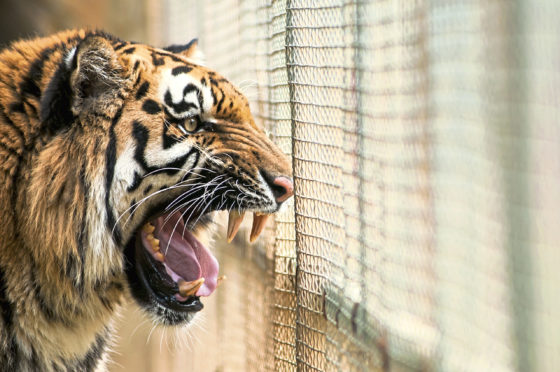No one knows when a disaster – be it flooding or a pandemic – will strike, which is why zoos must have an emergency fund.
Asking the public for handouts is not a sustainable approach. Even if these struggling facilities somehow garner enough financial support to get through this crisis, what happens when the next one inevitably strikes?
It’s high time that zoos reflected on what the future holds. There’s growing recognition that keeping animals in captivity for the paying public’s amusement is ethically indefensible.
Zoos can’t come close to replicating the jungles, savannahs, oceans, and forests where animals belong.
And captive animals have no control over their lives – they can’t decide when to eat, what to eat, where to roam, who to spend time with, and who to avoid.
Lacking autonomy, the opportunity for mental stimulation, and sufficient room to exercise, they often become despondent and develop abnormal, neurotic behaviour patterns – such as incessant pacing, swaying, and bar-biting.
This pandemic presents an opportunity for these struggling animal prisons to start being phased out of society.
The first step is for all zoos to stop breeding animals – so that this generation of caged animals will be the last. And the public can instead donate to programmes that target the root causes of extinction – habitat destruction and poaching – because all the cages in the world won’t stop species from dying out.
Jennifer White, People for the Ethical Treatment of Animals
